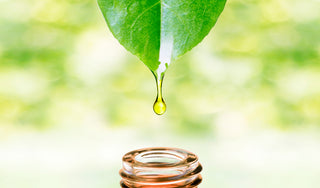At Juice Beauty, we take our EcoValues seriously and everything we do-- from organic ingredient sourcing and product development to managing our organic Juice Beauty farm and sustainable headquarters—we do with the following EcoValues as our unwavering foundation:
- FARM TO BEAUTY WITH AUTHENTICALLY ORGANIC FORMULAS. SUSTAINABILITY AT IT’S HIGHEST FORM.
- SUSTAINABLE PACKAGING AND COMPANY PRACTICES.
- VEGAN & NO ANIMAL TESTING EVER!
- BEYOND CLEAN. POWERFUL ACTION WITHOUT POTENTIALLY HARMFUL INGREDIENTS.
- SOCIALLY RESPONSIBLE GIVING SINCE 2005.
It’s not easy, but consumer products companies can achieve eliminating toxic chemicals from their products. It just takes passion, commitment, and perseverance. All Juice Beauty products are formulated without potentially harmful ingredients such as parabens, petroleum, pesticides, propylene or butylene glycols, silicones, talc, carbon black, phthalates, sulfates, PEGs, TEA, DEA, GMO, artificial dyes or synthetic fragrances.
Let’s dive into EcoValue #4 Powerful Ingredient Action Without Potentially Harmful Endocrine Disrupting Ingredients.
The endocrine system is a network of glands in your body that make the hormones that help cells throughout your body communicate with each other. The endocrine system is responsible for almost every cell, organ, and function in your body. Pretty important system! In humans, the major endocrine glands are the thyroid gland and the adrenal glands. Endocrine disruptors or endocrine-disrupting chemicals or compounds are chemicals that can interfere with endocrine systems.
Headline: Using farmed plant oils or no fragrance in our skincare and makeup products, Juice Beauty has avoided an estimated 10 tons of endocrine disrupting synthetic fragrance chemical use over the past decade.
Fragrance as an endocrine disruptor.
It’s one little word that packs a big toxic punch and it’s in almost every common personal care product such as moisturizers, makeup, lipsticks, shaving creams, deodorant, and of course perfume. Synthetic fragrance is also in conventional chemical cleaning products and don’t forget about the diffusers and air fresheners that disperse these chemicals into the air for us to readily inhale.
Unknowingly, consumers use products with synthetic fragrance that may cause serious chronic health issues, like cancer, hormone disruption, and reproductive problems. Why unknowingly? Due to the lack of federal regulation for fragrance and often the absence of conventional chemical beauty company ingredient transparency. Too many chemicals of concern are hiding under a single ingredient listing “fragrance” (or “parfum” or “perfume”) on the label. The global fragrance market cannot be underestimated in its’ power, as it is over a $70 billion industry with powerful lobbying to keep consumer transparency at bay.
In 2002, I read Breast Cancer Prevention Partners (BCPP) 1st State of the Evidence report, produced in conjunction with leading universities and I was astounded to learn how synthetic fragrance can be harmful to human health and subsequently to animals and the planet. To emphasize how many ingredients are hidden under that one word “fragrance”, Breast Cancer Prevention Partners tested 32 commonly used personal care and cleaning products from around the country to see how many chemicals they could identify.
The results were pretty shocking. In the BCPP report, "Right to Know: Exposing toxic fragrance chemicals in beauty, personal care and cleaning products," they found the following:
- 338 fragrance chemicals were used in the 25 personal care products tested (but not labeled).
- An overwhelming majority (75%) of the chemicals had been scientifically linked to chronic health effects like cancer, birth defects, respiratory harm, neurotoxicity, or hormone disruption.
- And the worst part of this report was that the highest number of chemicals linked to chronic health effects were in shampoos marketed for kids.
- Breast cancer links. Several products contained chemicals linked to breast cancer, such as benzene and 1,4-dioxane, which have been associated with mammary tumors in laboratory studies. They also found a number of hormone-disrupting compounds with links to breast cancer such as oxybenzone (chemical sunscreen), propylparaben (preservative), and phthalates (DEHP and DEP). To read BCPP’s full report -- click here.
At Juice Beauty, because of our unwavering passion and commitment to health and wellness of people, animals, and the planet, we have figured out how to make luxurious beauty products that smell great, meet or exceed conventional chemical product efficacy yet don’t contain any of these potentially harmful ingredients. Safe for you. Safe for the planet!


